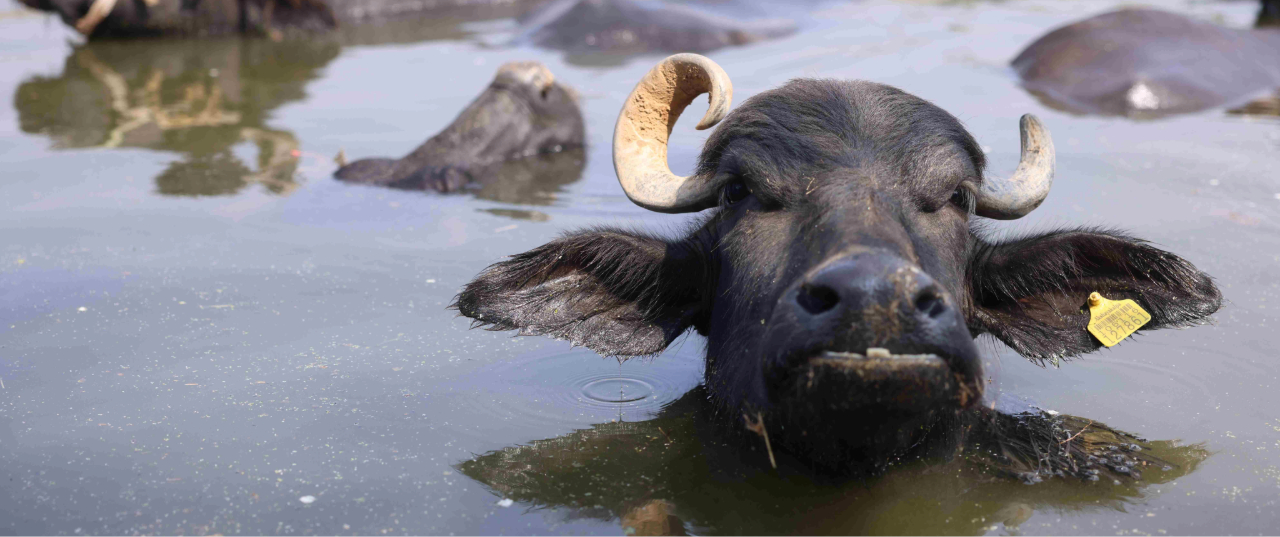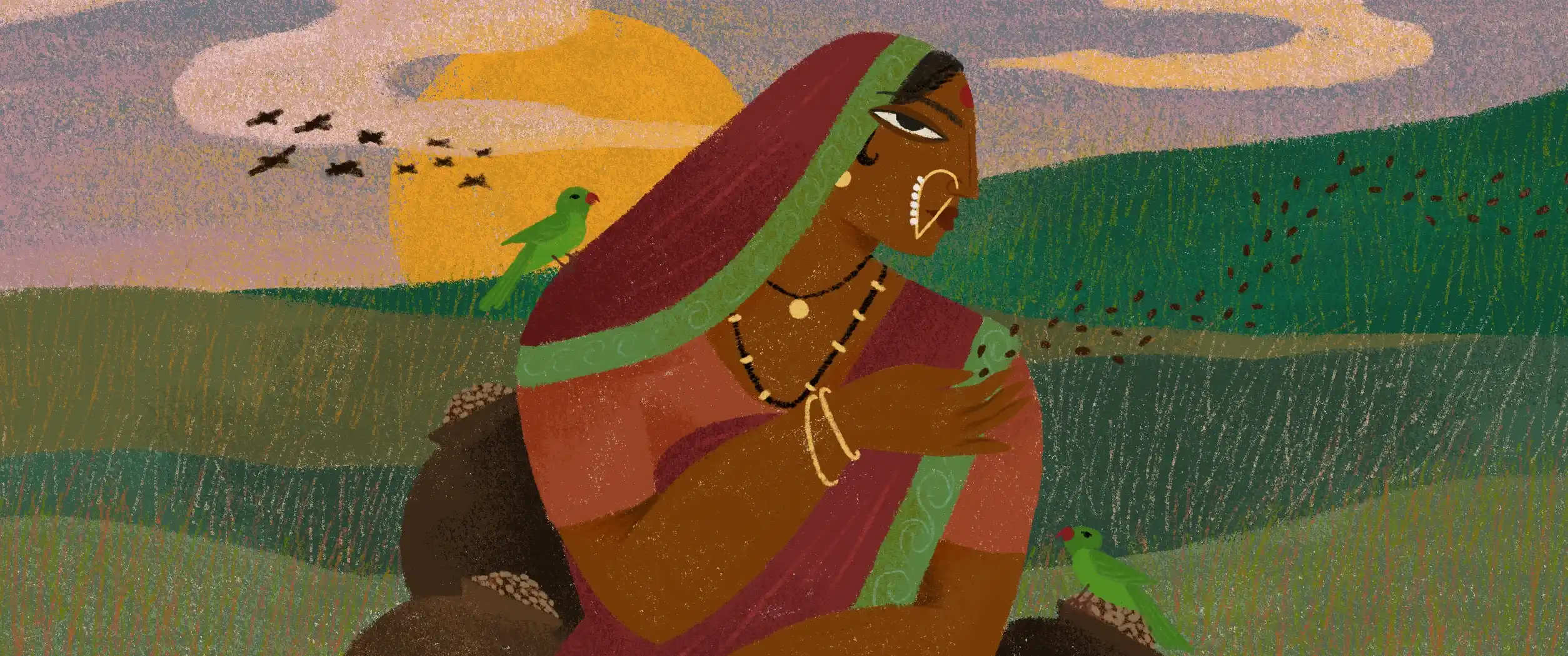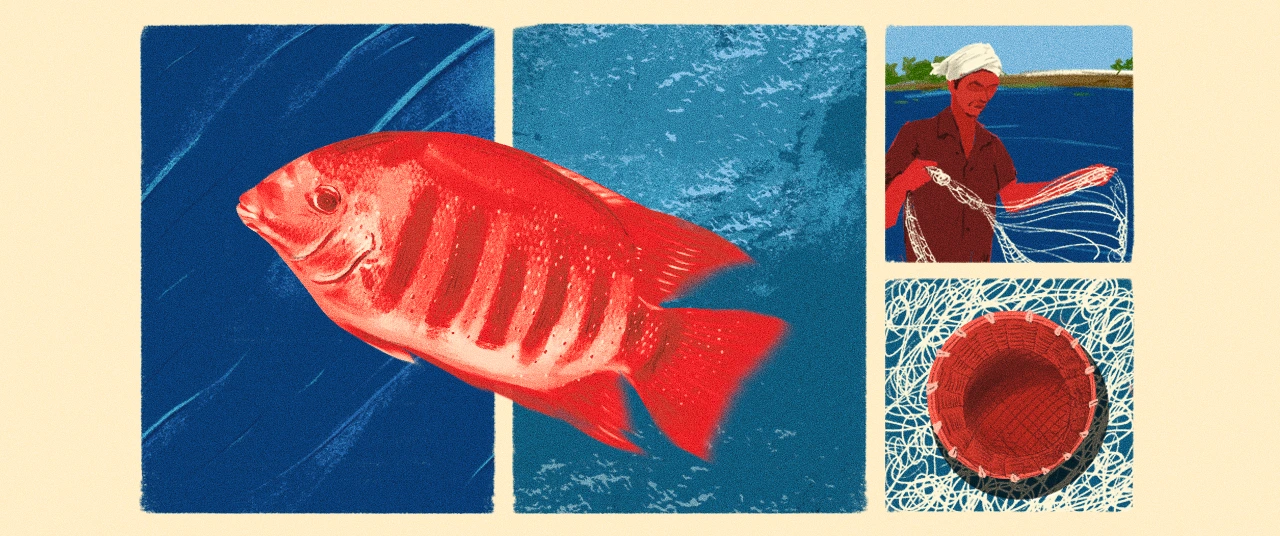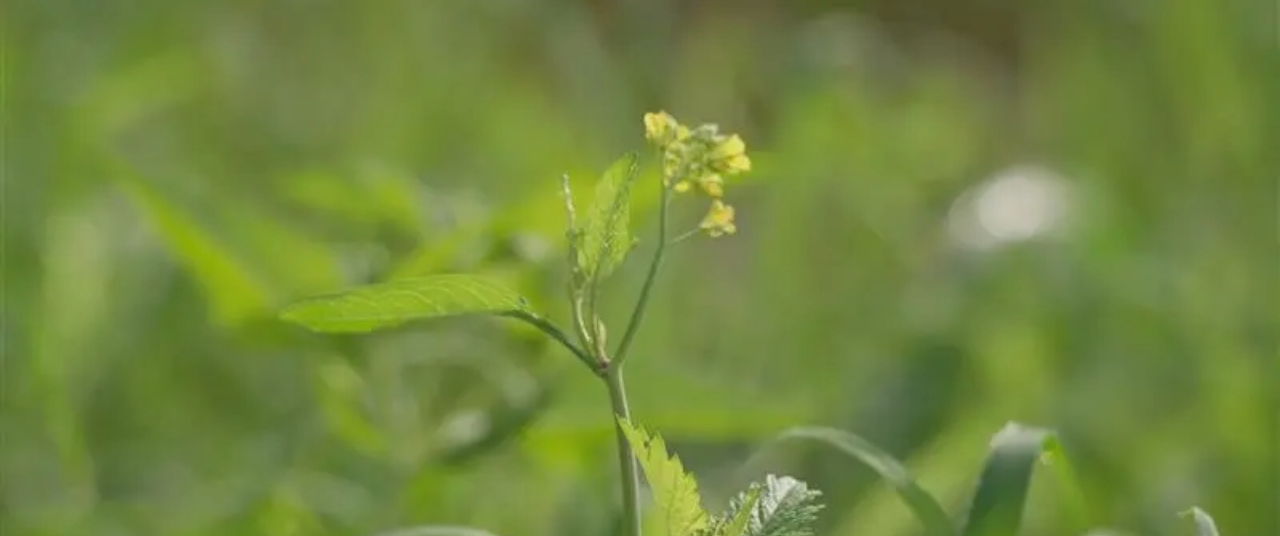After years of hard work, Kerala’s P Bhuvaneswari continues to till the land instead of merely supervising






As a young child, Kerala-based P Bhuvaneswari farmed with her father, Kunjikannan Mannadiyar. She fondly remembered the quiet satisfaction that came from working in the fields, and carried these memories well into her adult life—she knew that one day, she would want to return to tilling the land.
In 1995, Bhuvaneswari’s dream came true, but not quite: her husband Venkidachalapathy came into a share of ancestral property in the Elapully panchayat of Palakkad district. Venkidachalapathy, having served as both a math teacher and principal at the Government Moyans HSS, retired; the couple decided to move from the city to a life of farming. There was one major hurdle: whereas soil in Palakkad usually has a pH between 7 and 8.5, her land was inhospitably acidic, with a pH of 4.8. The land was bone-dry, filled with rocks, and stubbornly refused to nurture plants or yield water.
But Bhuvaneswari would not give up. First, she and her son Sajith cleared the land of stones, weeds, and bushes. Then, she consulted veterinary surgeon Dr Shudhodanan. She learnt that the way forward was to replenish the soil, so she planted some seema-konna (Gliricidia). Gliricidia is a miracle crop that grows rapidly and well, even on degraded soils, and increases soil fertility by around two to three times. While the soil healed, the family had to find a way to sustain themselves in the interim. At this point, a loan came through, providing two cows and a regular source of income in the form of milk. Moreover, cow dung served as organic manure and further enriched the soil. Gradually, Bhuvaneswari began planting mango trees, interspersed with turmeric first, and then ginger. Once these plants had put down roots, she experimented with other plants, including jasmine.
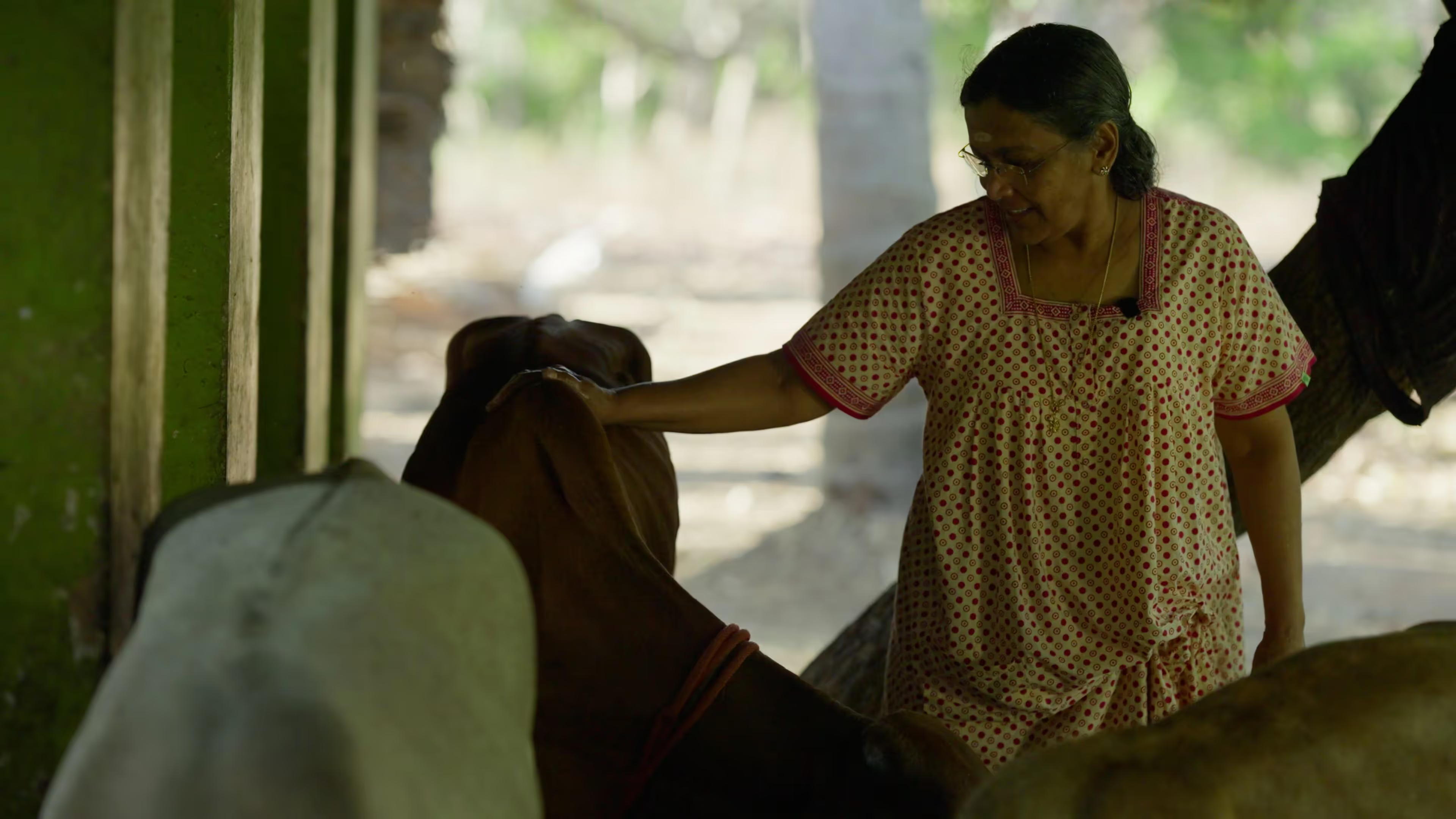
But she was yet to face her biggest challenge: arranging water for the crops. “When I started this farm, everyone told me it was a foolish idea because I would not get anything from it. ‘There will be no rain or groundwater,’ they said.” The naysayers were not all wrong; Bhuvaneswari dug two to three wells, but to no effect. Eventually, she dug a borewell over a kilometre away from her farm. It worked, and a second borewell soon followed.
In present times, 65-year-old Bhuvaneswari has adopted a high-density farming technique—not an inch is left uncultivated.
With a water resource in place, it was a matter of patience and faith. Five years were to pass before her persistence was rewarded, and Maruti Gardens came to life. Before long, she was planting two crops of paddy annually, and one crop of sesame, urad dal, horse gram, and moringa in between as cover crops. As her farm thrived, so did her children; they secured jobs in foreign countries. Having watched the happiness their mother derived from farming, they purchased 20 acres of land surrounding the original 4.5 acres for her.
{{marquee}}
In present times, 65-year-old Bhuvaneswari has adopted a high-density farming technique—not an inch is left uncultivated. Mango, jackfruit, areca, plantain, tapioca and coconut trees line her land, providing bountiful returns. Beyond native varieties of jackfruit, she is also growing the rare Vietnam early jackfruit that bears fruits within a year, as compared to other varieties that take between three to seven years. She also grows dwarf jackfruit trees, interspersing them with turmeric. A dedicated ten-acre space is set aside for rice cultivation, involving both Uma and ASD (Ambasamudram) paddy varieties. It yields upwards of 25 quintals annually.
Having sustained her farm for five years through dairy, Bhuvaneswari invested amply in animal husbandry. Her farm has cows of five varieties: Kapila, Vechur, Kangavam, Gyr, and a native breed. Hens, ducks, dogs, and goats can also be spotted around Maruti Gardens. Two acres are set aside for two massive fish ponds which rear catla, tilapia, and rohu fish.
Also read: A man dreamt of a forest. It became a model for the world
A philosophy of toil and generosity
When Bhuvaneswari had nothing but barren land and iron-clad determination, she found direction through a workshop by Subhash Palekar. Palekar is an agriculturist and Padma Shri awardee who propounded the “Zero-Budget Natural Farming” method. In the mid-1990s, it emerged as a low-cost alternative to the input-heavy methods brought about by the Green Revolution.
To this day, Bhuvaneswari maintains that she owes her farm’s success to her adherence to old farming techniques; that small measures—such as using dry leaves as mulch rather than burning them—go a long way. Having witnessed the results yielded by organic farming, she is pained to see the continued use of fertilisers like urea that hurt soil strength. She prepares her own bio-fertilisers, such as Jeevamrutha, Beejamrutha, and Panchagavya using cow dung and urine. “We grind 16 leaves in a stone bowl and put them in an earthen pot placed inside the soil. We then take the pot out after 41 days, strain it, and bottle the mix before we start cultivation.” This liquid is then applied to all plants as a natural pesticide. She is now an active member of Jaiva Samrakshana Samithy, Kerala's State Biodiversity Board.

Even in her mid-sixties, she prefers to participate in farming activities rather than merely supervise. She can usually be found up before dawn, engaging in tasks like ploughing the land, sowing seedlings, or even drying turmeric to turn it into powder. She operates a tiller with ease, having learnt to do so from her father. Faced with the issue of irregular farm labour, she also taught herself to drive a tractor a few years ago.
In 2021, she won the Malayala Manorama’s ‘Karshakasree' (best farmer) award. Beyond recognition and awards, there is a sense of spirituality to how Bhuvaneswari views farming. Every season of sowing and harvesting is marked by a pooja (prayer). Not once will she be caught wearing shoes while walking through her farmland. “With footwear, I feel like I am moving away from nature,” she says.
Even in her mid-sixties, she prefers to participate in farming activities rather than merely supervise.
When she started selling her produce online, she branded herself as 'Ammachi,' and her store as 'Ammachi's Organic Farm.' Translating to 'mother' in Malayalam, the term ‘Ammachi’ represents the maternal nature of her relationship to all that she grows. Perhaps, it also extends to those she grows it with. "My workers are like family to me, and we always work together on the fields like a team," she says.
Her kindness extends into other avenues: she is a much-loved volunteer at the Sneha Theeram Palliative unit, a local NGO. During the COVID-19 lockdown, she would get a 100 lunches packed every day and place them on her house's compound wall for those in need to collect. “There were many in dire straits in our neighbourhood. By providing them one meal, at least some of them did not have to go hungry,” she says in reflection. She continues to provide relief kits and meals to old age homes and those who are unwell.
Her affable personality has drawn in people from all walks of life, leading to the establishment of farm tours, as well as farming lessons conducted both online and in-person.
Also read: Babulal Dahiya makes every grain of rice count
Making agriculture profitable
“All my life, I’ve heard that agriculture is not profitable. But this is not true in my case,” Bhuvaneswari shares. Profitability comes with strategy, and Bhuvaneswari’s strategy was two-pronged: First, diversify from farm products (like fresh fruits) to farm-based value-added products (like pickles). Second, take ownership of your supply chain.
Most of the farm’s produce leaves its quarters in an entirely different form. Jackfruit is turned into either papadam (papad) or kondattam (sun-dried fruit that is fried subsequently). Coconuts, for the most part, transform into coconut chutney powder. Some of them, however, get to spend some time in earthen vessels as they become cold- or hot-pressed coconut oil. Plantains are prepared into sharkara varatti (jagerry-coated chips) or plantain powder (a substitute for flour). Rice is made into idiyappam, puttu, idli, and avil (flattened rice). Ghee is a key ingredient for preparing the bio-fertiliser Panchagavya, but any excess finds its way to the store. Rare as it is, it sells for Rs. 2,000 per kilo.
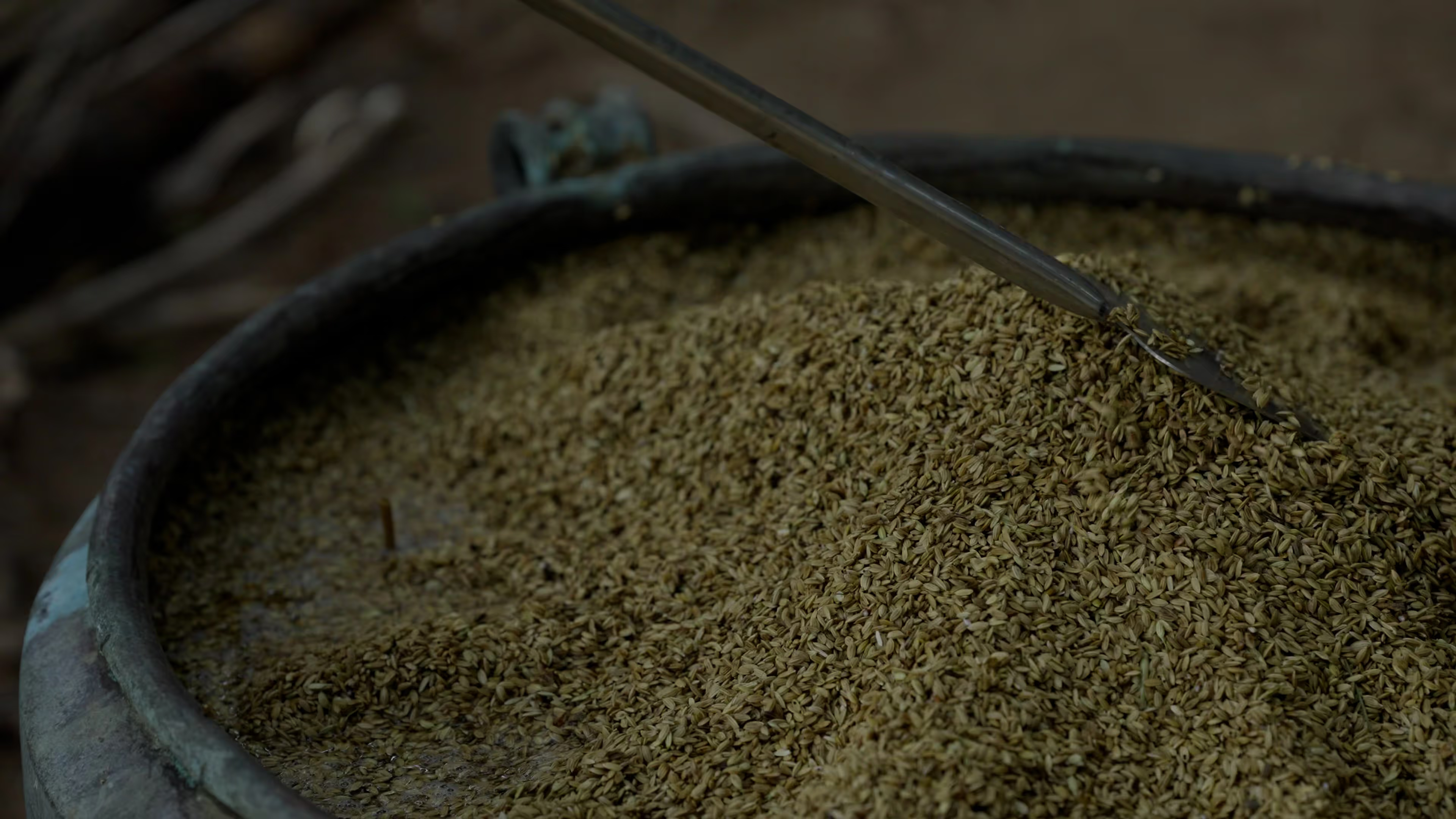
Also read: Sasbani’s 'fruits' of labour: Reviving hope in rural Uttarakhand
Mangoes are the one exception to Ammachi’s model, sold primarily as fruits rather than fruit products. Here too, however, she maintains firm control over the supply chain. “I have not given any dealers access to the farm. They would spray Cultar (a plant growth regulator) on its foliage and apply some to the soil near the trunk. That is not acceptable to me,” she asserts. Instead, she packs and ships the fruit independently, earning loyal customers across the country. Any unclaimed mangoes are restyled into mango thoran (a dry vegetable dish) or mango peratt (a type of pickle). With over 300 mango trees of eight varieties spanning 10 acres, she earns Rs. 9 lakh from mango and mango-product sales alone.
Although customers can visit the farm premises, the majority of its sales are generated through its website. Ammachi's son, Sajith, who helped her clear the land when she first began farming, supported her in the building of the digital front of the store, along with his brother Sabith. Her daughter Sabitha handles the farm's social media and hosts visitors. Her youngest son, Ani, helps her with the physically demanding tasks on the farm.
Her independent storefront has seen such booming success that she has never had to sell her produce outside of the farm walls. As a result, she has never even had to avail of Kerala’s paddy procurement scheme, colloquially referred to as ‘Supplyco’. Rather, she earns a whopping Rs. 18 lakh of profit from paddy cultivation, after accounting for initial expenses amounting to Rs. 2 lakh. “Agriculture is not a loss-making venture,” she declares. The proof surrounds her.
{{quiz}}
Explore other topics
References

Which of these fertilisers does Bhuvaneswari NOT use?
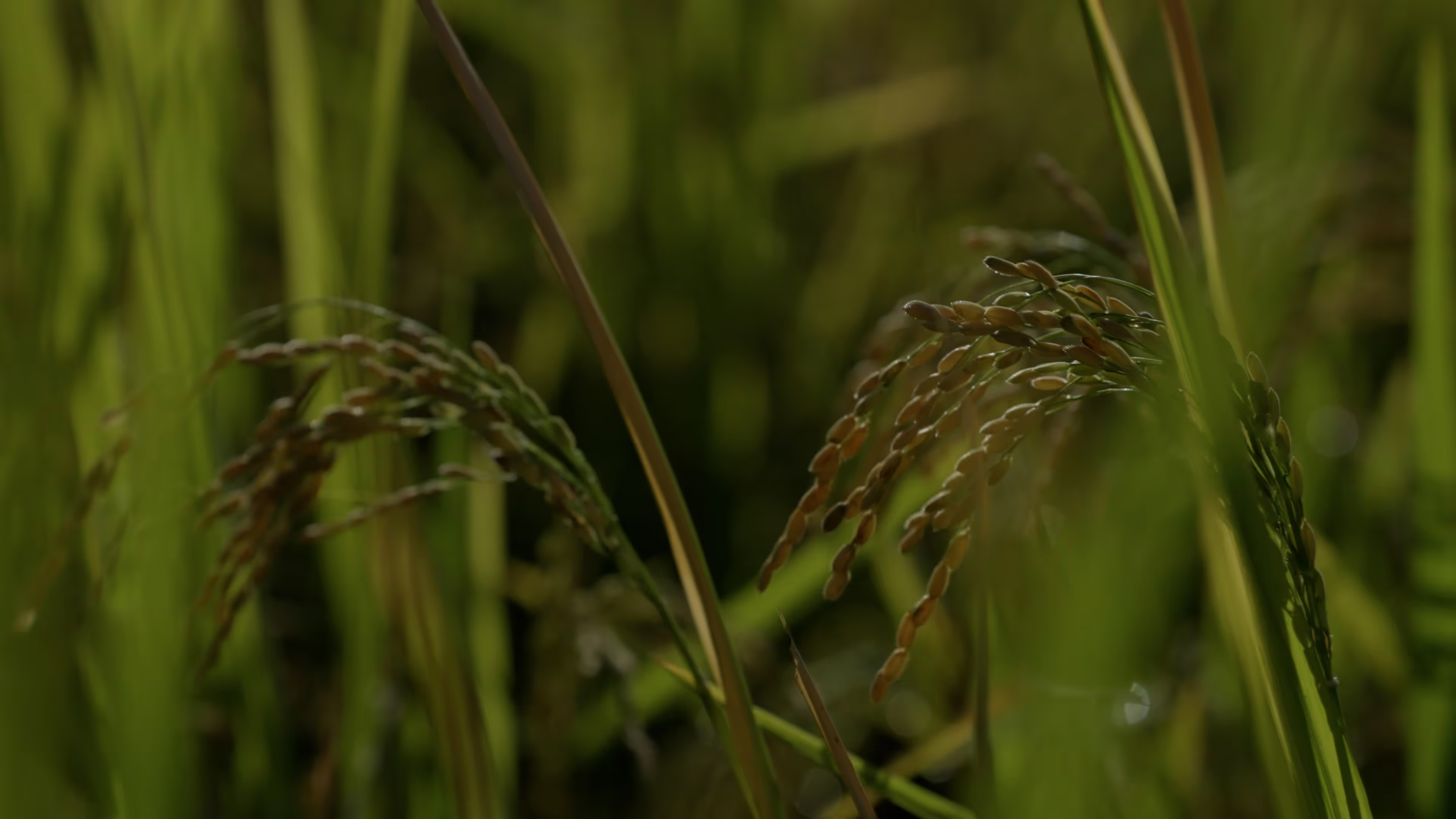


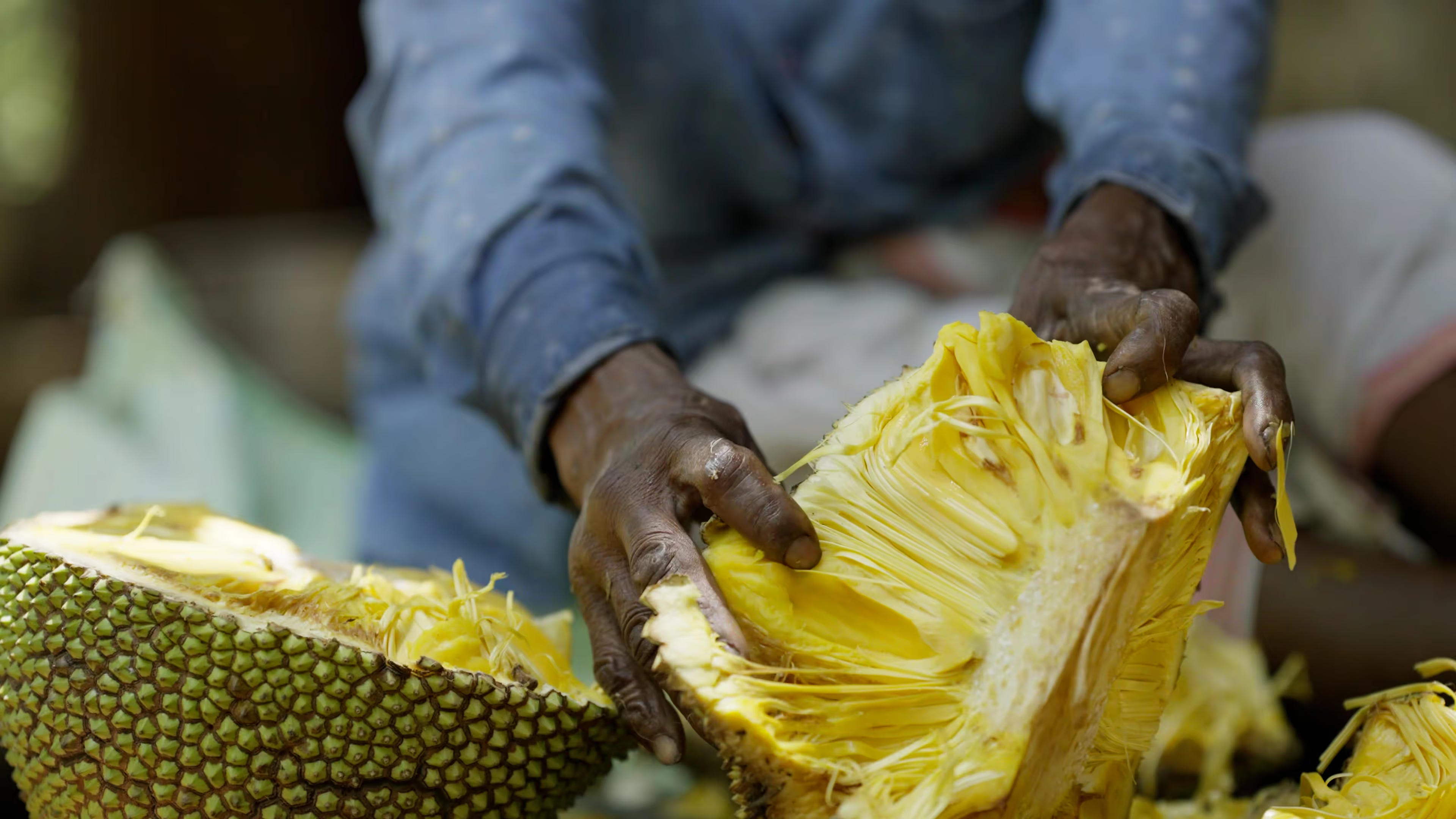
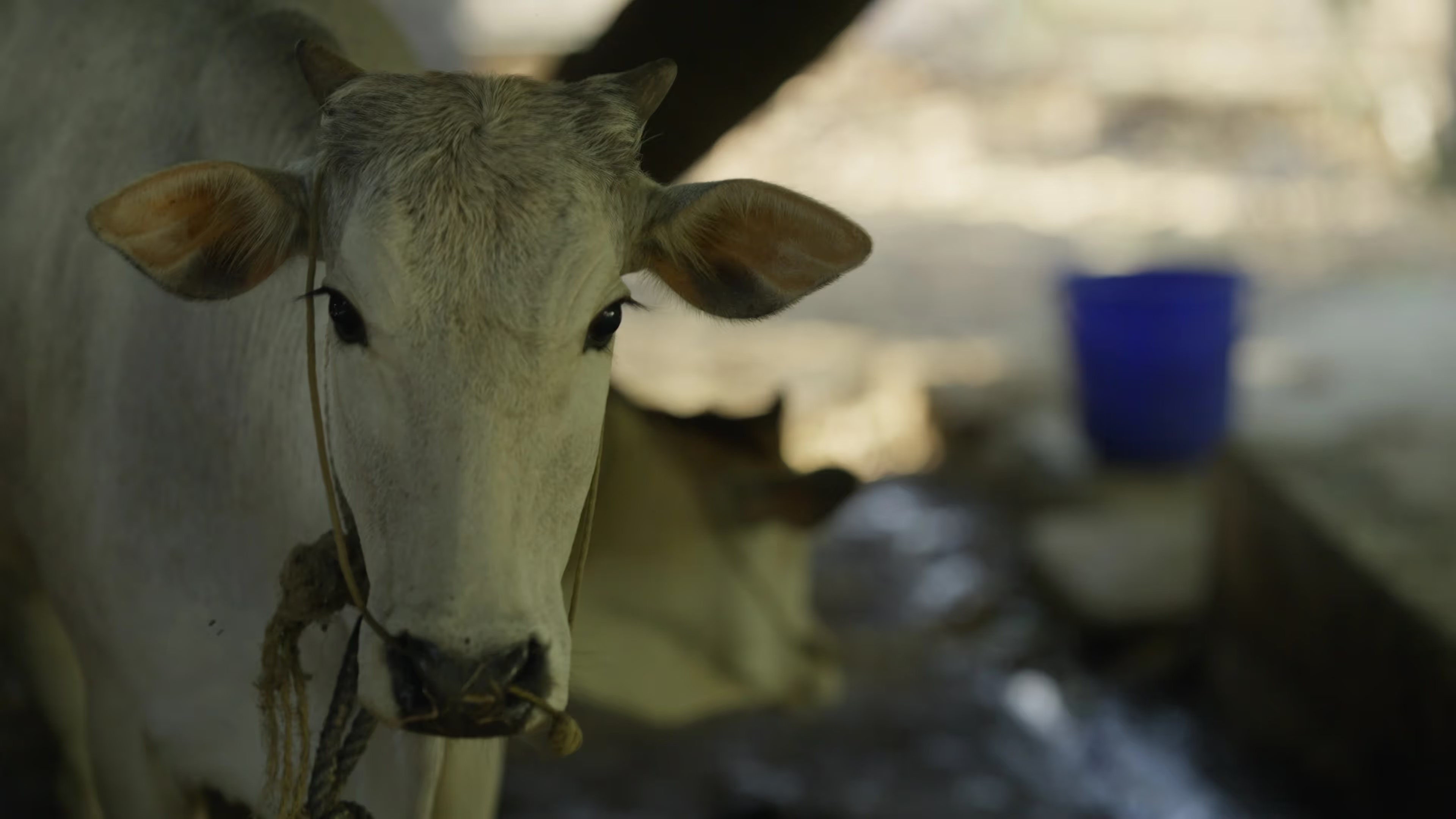
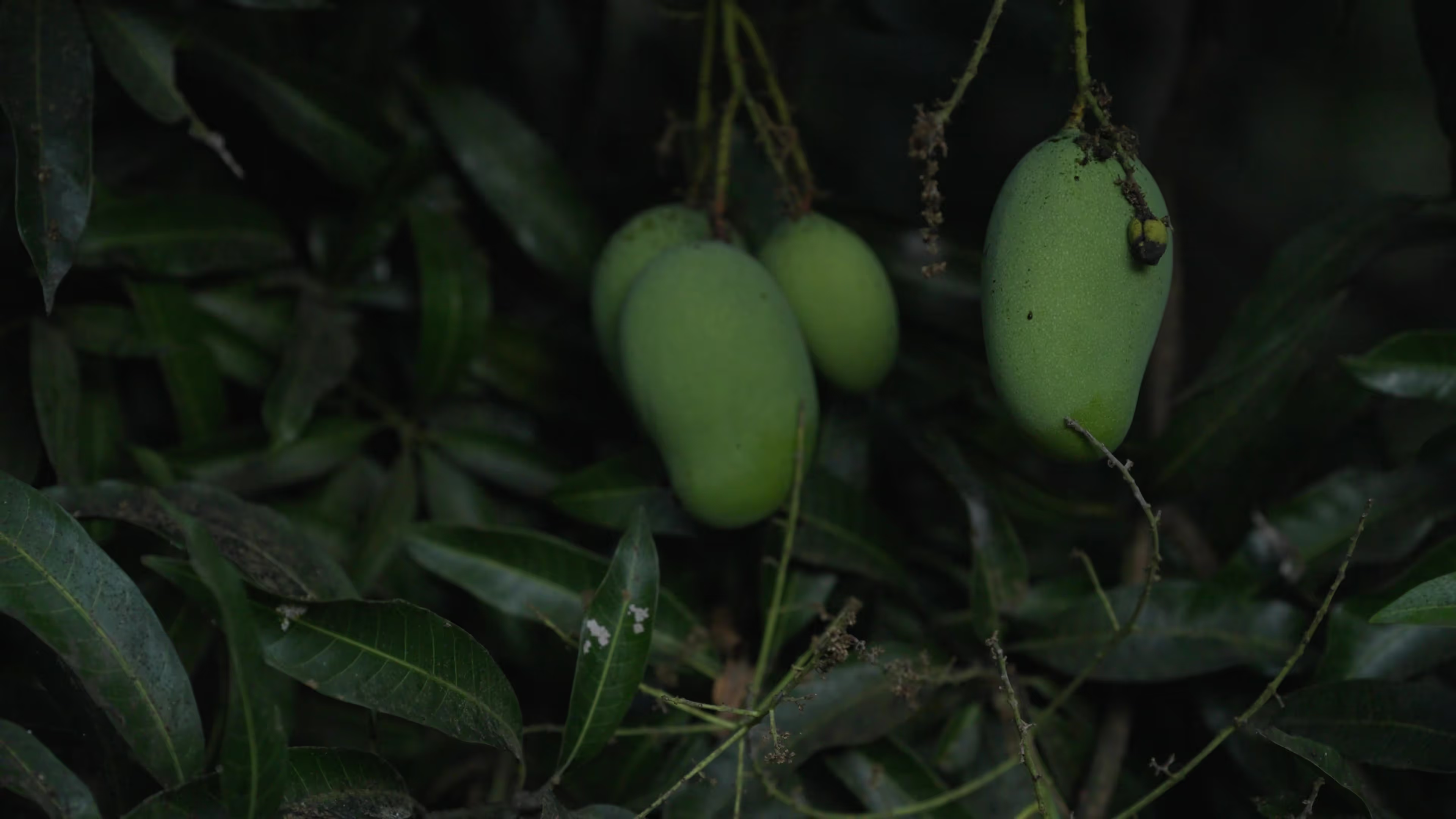


















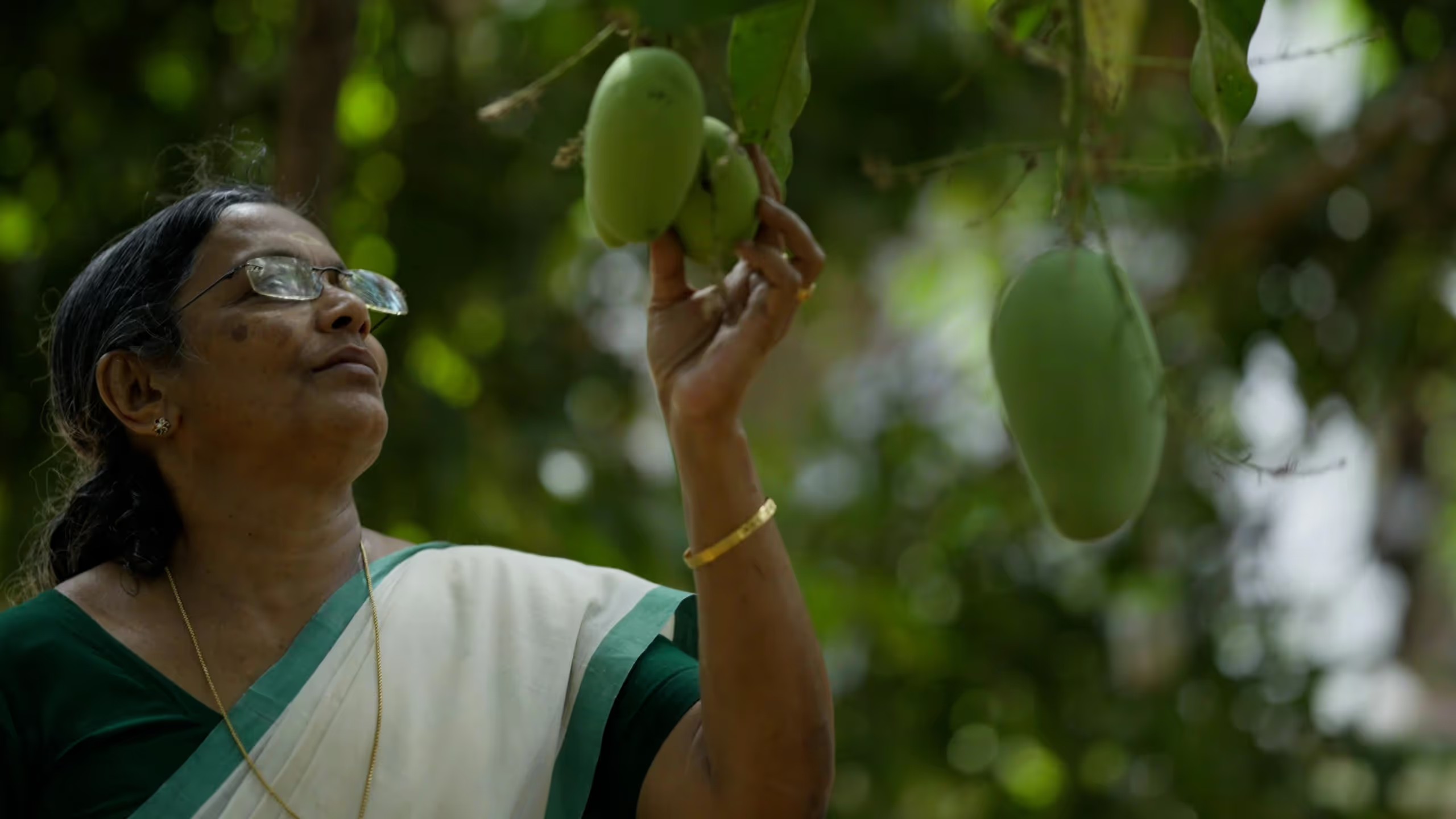
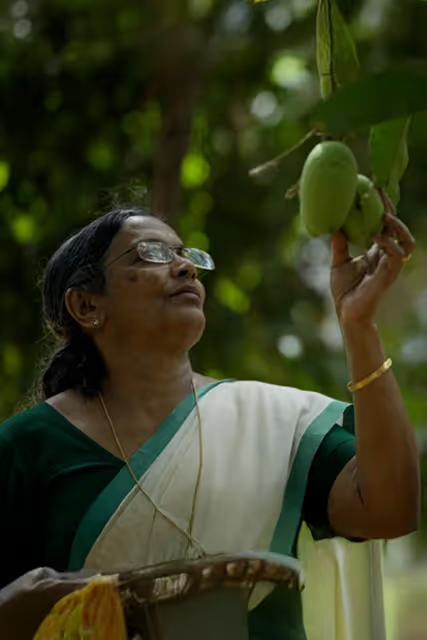

.avif)

.avif)
